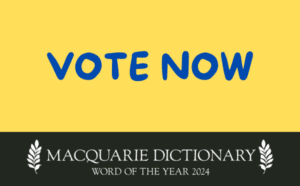As a term, fake news seems to be a poorly understood one. When levelled as a pejorative against media organisations, it calls to mind Dylan Thomas’s definition of an alcoholic: someone you don’t like who publishes as much as you do. Pressed to define what makes fake news distinct from, say, poor reporting, the ABC’s language committee broadly agreed that that fake news must be deliberately inaccurate, designed to look like real news, and intended to mislead rather than entertain. Satire, in other words, doesn’t count.
On this, the committee is in good company. Recently, the AP Stylebook added the term to their style guide, saying the term shouldn’t be applied for specific disputed news items. If fake news is used in a quote, the post ran, journalists should push for specifics about what exactly is meant.
Which brings us to a real-life example of a radio news bulletin put to air earlier this year. Here is the introduction:
A Gun Control Australia report has found no Australian state or territory has ever fully complied with firearms regulations … Robert Borsak from the Shooters, Fishers and Farmers Party says that is fake news.
In this example, Robert Borsak did indeed refer to the Gun Control Australia report (verbatim) as fake news — though that specific quote was not played later in the package. As a listener, it could be argued that it is difficult to get a sense of what Borsak meant: did he believe the conclusions of the report to be in error? Did he believe Gun Control Australia was spreading erroneous reports while masquerading as news? False, unverified, questionable — all adjectives that would work just as well.
In the past, some ABC content makers have argued that to even use the term fake news gives undue legitimacy to a toxic underlying concept: that segments of media deliberately set out to mislead the public through their news output. While this framing aspect is one the committee considered, ultimately we did not suggest content makers avoid or endorse the term.
At any rate, the horse has bolted. Fake news is likely to endure at long as it has utility to speakers. It has become a byword of the Trump administration (though he did not coin the term, President Trump is responsible for its surge in popularity) and the nascent alt-right movement. Macquarie Dictionary named it their 2016 Word of the Year, and this year Collins Dictionary named it theirs. It’s here to stay — and that, I think, nobody can dispute.
Tiger Webb is ABC’s language research specialist and a frequent contributor to ABC Radio. He is on the committee for the 2017 Macquarie Dictionary Word of the Year.




